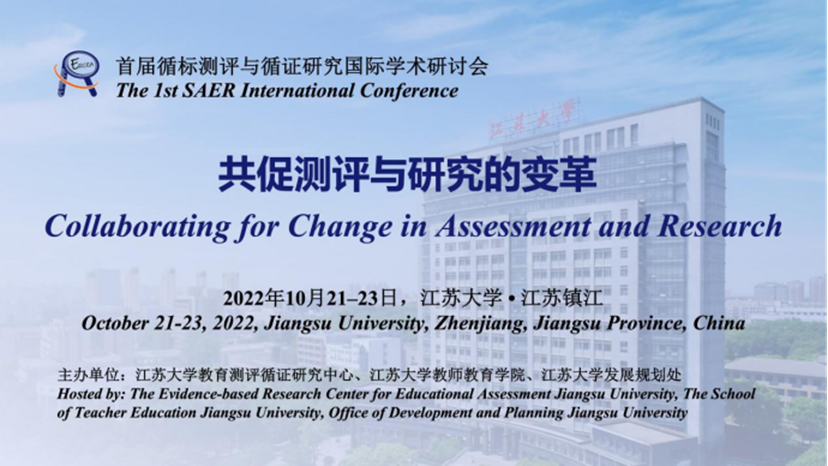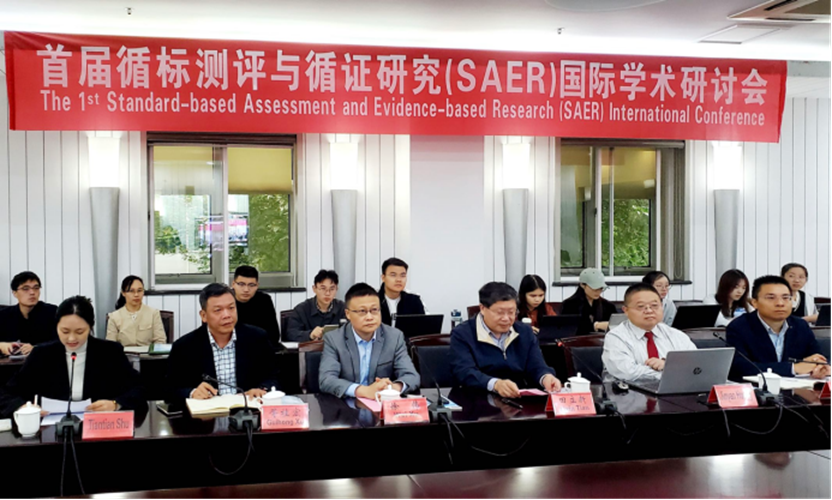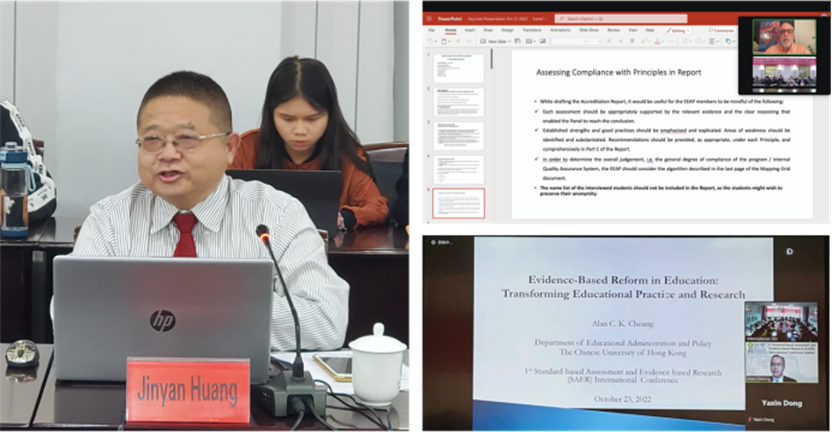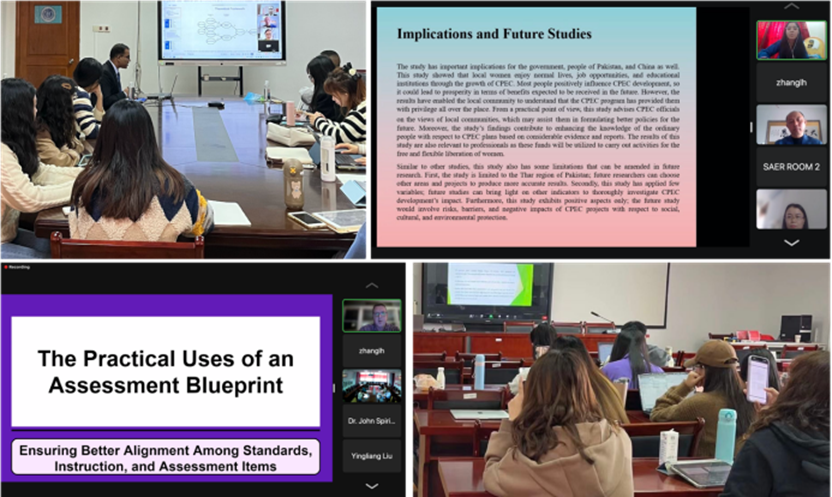From October 21 to 22, the first International Conference on Benchmarking Assessment and Evidence-Based Research was held in Zhenjiang. The conference adopted a combination of online and offline approaches, and more than 50 experts and scholars from 33 universities and enterprises at home and abroad participated in the seminar. The seminar was organized by Jiangsu University and co-organized by the Planning and Development Office of Jiangsu University, the School of Teacher Education, and the Evidence-based Research Center for Education Assessment.

The opening ceremony was graced by the presence and speeches of esteemed individuals such as Tian Lixin, the Vice President of the institution, Xu Wei, the Director of the Development Planning Department, and Wang Jiajia, the Dean of the School of Teacher Education. During his address, President Tian extended a warm greeting to the participants and provided an introduction to the educational institution. President Tian emphasized the crucial role of educational assessment in reforming and advancing higher education. Additionally, President Tian expressed full recognition of the relevance and contribution of this academic conference towards the development and implementation of educational evaluation theory, methodology, and technology. During his speech, Director Xu provided an overview of our university's current state of educational evaluation. He emphasized the significance of both the theoretical and practical aspects of educational evaluation in fostering innovation in university subject knowledge, advancing the development of service education, and implementing effective strategies for growth and internal governance reform. President Wang provided a concise overview of the Center for Evidence-based Research in Education Assessment and the School of Teacher Education. He expressed his desire for this seminar to facilitate the advancement and dissemination of educational evaluation methods, translate educational research into practical applications, and strengthen international collaboration and exchange between the Center and the College. In attendance during the commencement event were Xu Guihong, the Deputy Director of the Planning Department; Huang Chengcheng, the Director of the Evidence-based Research Center for Education Assessment; Huang Jinyan, and educators and students from the School of Teacher Education.

Figure 1 Opening ceremony of the conference
Focusing on the theme of the conference, “Jointly Promoting the Transformation of Assessment and Research,” Professor Huang Jinyan, Director of the Evidence-Based Research Center for Education Assessment of Jiangsu University, Professor John Spiridakis of the School of Education of St. John’s University, USA, and Professor Alan Cheung of the Chinese University of Hong Kong delivered keynote speeches at the conference. The significance and practical cases of evaluation and evidence-based research in the field of education are introduced and shared.

Figure 2 Keynote speech
The conference also set up an academic exchange session, and 44 young scholars at home and abroad presented papers on “Assessment, Testing, Measurement and Evaluation” and “Quantitative, Qualitative and Mixed Research Methods.” The conference invited Professor Liu Yingliang from Wuhan University of Technology and Professor Meng Lingqi from Qufu Normal University as review experts to preside over the paper reading session and carry out academic exchanges with young scholars.

Figure 3 Academic reports and exchanges of the conference
The symposium received overwhelming acclaim from all participants. This initiative has offered diverse viewpoints and approaches to scholars and students engaged in education through delivering keynote speeches and producing academic studies. Consequently, it has facilitated the progression of education research towards empirical investigation. During the discussion, experts and scholars emphasized the importance of enhancing collaboration between universities and industries to advance the reform of assessment and research collectively.